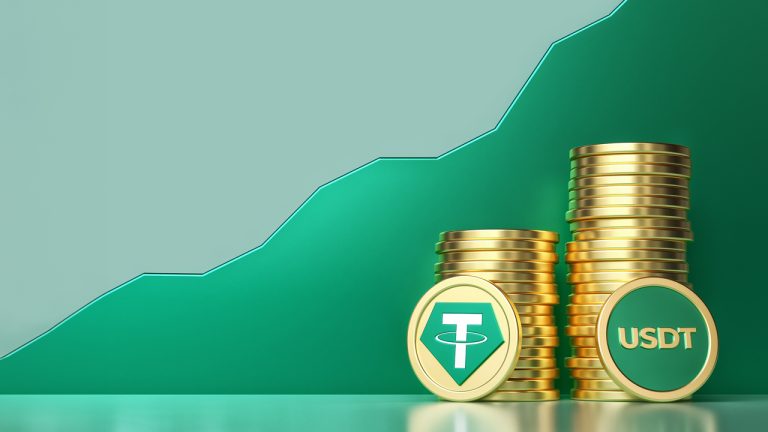Understanding The SEC's Stance On XRP: Commodity Or Security?

Table of Contents
The SEC's Case Against XRP
The SEC's core argument hinges on the application of the Howey Test, a legal framework used to determine whether an investment constitutes a security.
The Howey Test and XRP
The Howey Test outlines four elements:
- Investment of money: The SEC argues that purchasers of XRP provided money in exchange for the digital asset.
- Common enterprise: The SEC claims a common enterprise existed between Ripple, its distributors, and XRP purchasers, implying shared investment risk and profit.
- Expectation of profits: The SEC contends that XRP purchasers anticipated profits based on Ripple's efforts and the anticipated growth of the XRP ecosystem.
- Efforts of others: The SEC emphasizes that the success of XRP depended significantly on Ripple's efforts in development, marketing, and distribution.
The SEC's complaint highlights Ripple's large-scale sales of XRP, alleging these sales constituted unregistered securities offerings, violating federal securities laws. They point to Ripple's active marketing and promotion of XRP as contributing to the expectation of profits among investors. The SEC's perspective is that Ripple, through its actions, created an investment contract, thereby rendering XRP a security.
The SEC's Definition of an "Investment Contract"
The SEC's interpretation of "investment contract" is central to their case. They argue that an investment contract exists when investors contribute money with the expectation of profit derived primarily from the efforts of others. This definition's key aspects include:
- The reliance on a third party (Ripple) for the success of the investment.
- The lack of direct control by investors over the investment's outcome.
- The expectation of a return based on the efforts of Ripple's team.
The SEC's broad interpretation of this definition has implications not only for XRP but potentially for other cryptocurrencies, raising concerns within the industry about future regulatory actions.
Ripple's Defense
Ripple vigorously contests the SEC's classification of XRP as a security, arguing that it's a decentralized digital asset with utility beyond investment.
Arguments for XRP as a Commodity
Ripple's defense rests on several pillars:
- Decentralization: Ripple emphasizes XRP's increasing decentralization, arguing it operates independently of Ripple's control.
- Lack of direct control: Ripple asserts it lacks direct control over XRP's price or market activity, unlike a typical security issuer.
- Utility beyond investment: Ripple highlights XRP's use in facilitating cross-border payments and other transactions, emphasizing its practical applications beyond mere investment.
Ripple has presented expert testimony and analysis supporting their stance, aiming to demonstrate XRP's characteristics align more closely with those of a commodity or currency rather than a security.
The Role of Decentralization in XRP Classification
The level of XRP's decentralization is a crucial factor in determining its legal status. Ripple argues that the ongoing decentralization efforts diminish the applicability of the Howey Test. The evolution of XRP's network and its increasing independence from Ripple are pivotal to their defense. Comparing XRP's decentralization trajectory to other cryptocurrencies like Bitcoin becomes a key element in their argument.
Potential Outcomes and Implications
The court's decision will have profound consequences for Ripple, XRP holders, and the wider cryptocurrency market.
Scenario 1: XRP Ruled a Security
If XRP is ruled a security:
- Ripple could face substantial fines and penalties.
- XRP holders might face difficulties trading or transferring their holdings.
- The cryptocurrency market could experience significant volatility and uncertainty.
- This could trigger more stringent regulations for other cryptocurrencies.
Scenario 2: XRP Ruled a Commodity
If XRP is ruled a commodity:
- Ripple would likely avoid significant penalties.
- XRP trading would likely continue largely unaffected.
- The cryptocurrency market could experience a boost in confidence.
- However, it doesn't guarantee a regulatory free-for-all for other cryptocurrencies.
Impact on the Broader Cryptocurrency Market
Regardless of the outcome, the SEC vs. Ripple case will significantly impact the broader cryptocurrency market:
- It will set a precedent for how regulators approach the classification of other cryptocurrencies.
- It will influence future regulatory frameworks and enforcement actions.
- It will impact investor confidence and the overall market stability.
Conclusion
The SEC's stance on XRP – security or commodity – remains a critical question with far-reaching consequences. This landmark case highlights the urgent need for clear and comprehensive regulatory frameworks within the cryptocurrency space. Understanding the nuanced arguments of both sides and the potential outcomes is crucial for anyone involved in or interested in the future of XRP and the cryptocurrency market as a whole. Continue researching the XRP security debate and the SEC XRP lawsuit to make informed decisions about your investments and navigate this evolving landscape.

Featured Posts
-
 12 Inch Surface Pro A Detailed Look At Microsofts Smaller Tablet
May 08, 2025
12 Inch Surface Pro A Detailed Look At Microsofts Smaller Tablet
May 08, 2025 -
 Brezilya Da Bitcoin Oedemeleri Yasal Durum Ve Gelecegi
May 08, 2025
Brezilya Da Bitcoin Oedemeleri Yasal Durum Ve Gelecegi
May 08, 2025 -
 Playing Ps 5 Exclusives On Ps 5 Pro Enhanced Graphics And Performance
May 08, 2025
Playing Ps 5 Exclusives On Ps 5 Pro Enhanced Graphics And Performance
May 08, 2025 -
 67 Million Ethereum Liquidation A Deep Dive Into Market Trends
May 08, 2025
67 Million Ethereum Liquidation A Deep Dive Into Market Trends
May 08, 2025 -
 Blue Origin Rocket Launch Aborted Subsystem Problem Delays Mission
May 08, 2025
Blue Origin Rocket Launch Aborted Subsystem Problem Delays Mission
May 08, 2025
Latest Posts
-
 Lotto 6aus49 Vom 19 04 2025 Alle Gewinnzahlen Im Ueberblick
May 08, 2025
Lotto 6aus49 Vom 19 04 2025 Alle Gewinnzahlen Im Ueberblick
May 08, 2025 -
 Lotto 6aus49 Ziehung Mittwoch 9 April 2025 Ergebnisse
May 08, 2025
Lotto 6aus49 Ziehung Mittwoch 9 April 2025 Ergebnisse
May 08, 2025 -
 6aus49 Lottozahlen Ergebnis Der Ziehung Am 19 April 2025
May 08, 2025
6aus49 Lottozahlen Ergebnis Der Ziehung Am 19 April 2025
May 08, 2025 -
 Mittwoch Lotto 6aus49 9 4 2025 Alle Gewinnzahlen Im Ueberblick
May 08, 2025
Mittwoch Lotto 6aus49 9 4 2025 Alle Gewinnzahlen Im Ueberblick
May 08, 2025 -
 Lotto 6aus49 Ergebnis 19 April 2025 Gewinnzahlen Und Quoten
May 08, 2025
Lotto 6aus49 Ergebnis 19 April 2025 Gewinnzahlen Und Quoten
May 08, 2025
